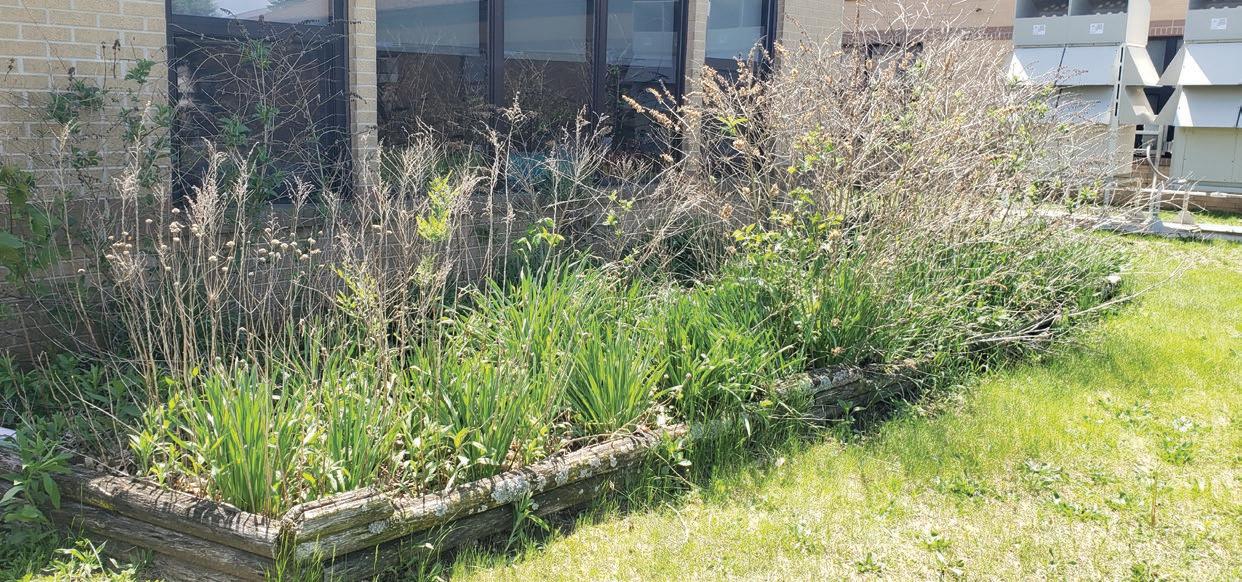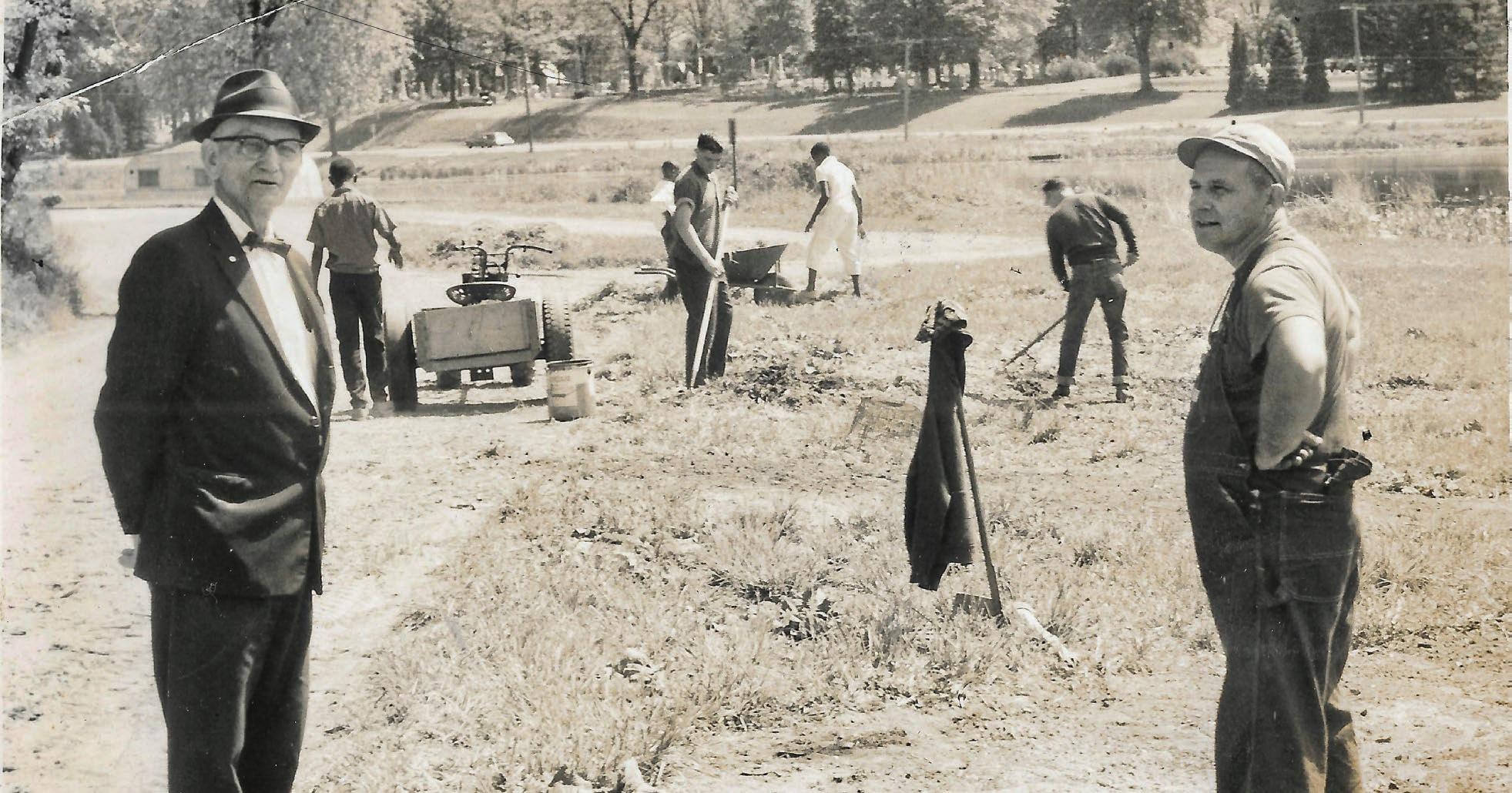
6 minute read
Faith in Change
Change is inevitable but unsettling. Embracing it can be a principle for transforming our lives.
It might seem strange to choose change as a principle to help build your life. Change, after all, is the opposite of permanence. It can be unpredictable, unsettling, and more than a little scary. How many of us face painful upheavals and wish we could return to "the good old days"?
"God loves you the way you are, but He also loves you too much to let you stay that way." — Scott Hahn of the Franciscan University of Steubenville
Yet change also is inevitable, necessary, and can be a powerful force for drawing us closer to God and to other people. The Gleaner Society was formed in 1894 to create positive change, originally for farm families and soon after for all residents. For isolated "dirt farmers" of the late-19th century, transforming ideals such as protection, community, benevolence, stability and empowerment into reality required faith indeed.
Founding members drew inspiration from the Bible's book of Ruth. One of its themes is change. Naomi, her husband, and their two sons flee a famine around Bethlehem and move to Moab, a pagan nation east of the Dead Sea. Her sons marry Ruth and another Moabite woman. Both wives were raised in Moab's culture, which sacrificed infants to its gods. Within 10 years of arrival, Naomi's husband and sons have died, causing Naomi to bitterly return to her people in Judah. She urges her daughters-in-law to go back to their old homes, but Ruth would rather change everything than abandon Naomi. "Do not urge me to leave you or turn back from following you. For where you go I will go, and where you live I’ll live,” Ruth declares. “Your people shall be my people, and your God my God. Where you die I will die, and there I will be buried. May the Lord deal with me, be it ever so severely, if even death separates you and me.” (Ruth 1:16-17)

Ruth’s turning to forsake her past and embrace God (as well as her faithfulness to Naomi) eventually is rewarded. Her loyalty earns her the protection and favor of Boaz, the owner of the fields where she gleans. Ruth marries Boaz, and their son Obed becomes not only a grandfather of the future King David but part of Jesus’ lineage. The picture of God’s grace welcoming outsiders into His family was mirrored in the aspirations of early Gleaner members.

When Ruth committed to change, however, any reward seemed unlikely. She was a widow, helping an older widow, risking a dangerous journey and potential starvation in a land where she would be a Moabite immigrant. Her new situation must have felt frightening. The same can be true today when we face changes. It is a journey in faith but filled with guideposts:
1. Change is both unavoidable and necessary. Since ancient times, people have recognized that everything in this world is in flux. Without change there would be no learning and no growth. God is always doing new things, and we should pay attention (Isaiah 43:18-19). Pining for idealized “good old days” misses the present.
2. Change can be scary, but God promises to work all things — not just pleasant events — for the good of those who love Him and are called according to His purpose (Romans 8:28). This is shown not only in the life of Ruth but others including Joseph, Job, David and Paul as well as Jesus. We all endure pain and grief. It takes faith not to fixate on asking God “Why?” but to instead ask, “What should I do now?”
3. Change can be unpredictable, but we do have choices. Ruth couldn’t anticipate her family members’ deaths, but she could choose her next steps. We don’t know whether our deaths will occur soon or years from now, but we can choose to set up protection now for our loved ones.
4. Medical science has found that change rewires our thinking, adapting new neural pathways and building new connections. This echoes biblical instruction to not conform to the world’s pattern but to be transformed by the renewing of our mind (Romans 12:2). New thinking leads to new actions and then new habits, building character and resilience while changing our attitude.
5. Change alters how we respond to others. Our experiences should help us empathize with them. We can love and forgive because we’ve been loved and forgiven. Others — mentors, family, strangers, even our “enemies” — become catalysts for our changes (Matthew 5:43-48). Growing more like Jesus (“sanctification”) is a life of growing more loving.
These changes, like Ruth’s, all require faith. Personal willpower is notoriously weak. (How many New Year’s resolutions have we broken already?) God, on the other hand, is already at work within us and can accomplish infinitely more than we might ask or think (Ephesians 3:20).
Like Ruth, we can embrace new ways. It’s OK to feel scared. Death remains an “uncertain certainty,” but we can have faith in God’s sovereignty, love for us, and plans beyond our wildest dreams. Rather than ask, “Why?” we can ask, “What is this new thing, God?” Being thoughtful for the future and open to change helps us “expect the unexpected” and be transformed.
Arbor, students make butterfly garden changes

Butterflies are wonderful symbols of change. Their metamorphosis from a caterpillar to a chrysalis to an adult butterfly is a study in transformation. So, when Plank Road Arbor (MI) teamed up with a group of student volunteers to refurbish an overgrown butterfly garden, they took part in a cycle of changes. The butterfly garden is located at Breckenridge Elementary School outside the library. With the help of five National Honor Society student volunteers the group cleaned the garden, rebuilt the retaining wall, and planted new butterfly-friendly plants. “It was a very enjoyable project and we were very pleased with the results, as were the school employees,” Arbor President David Briggs reported.












